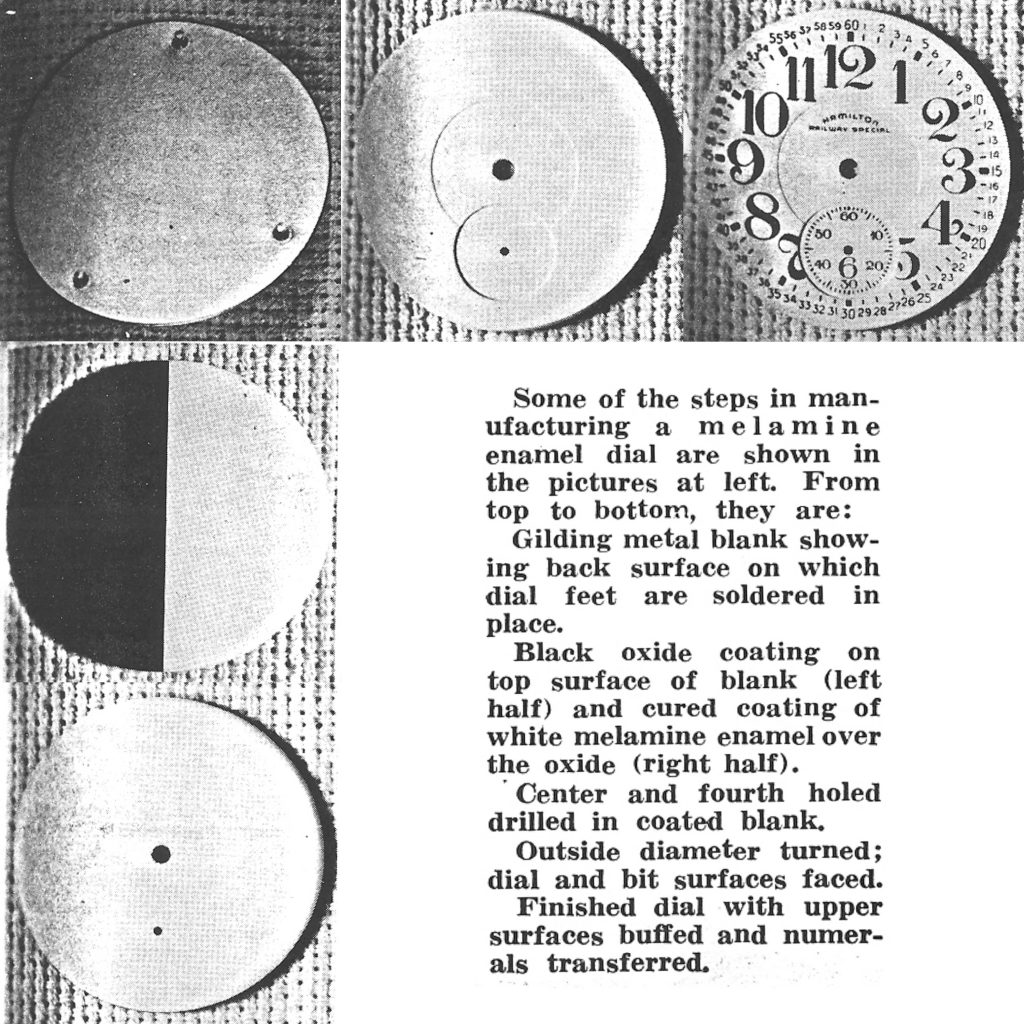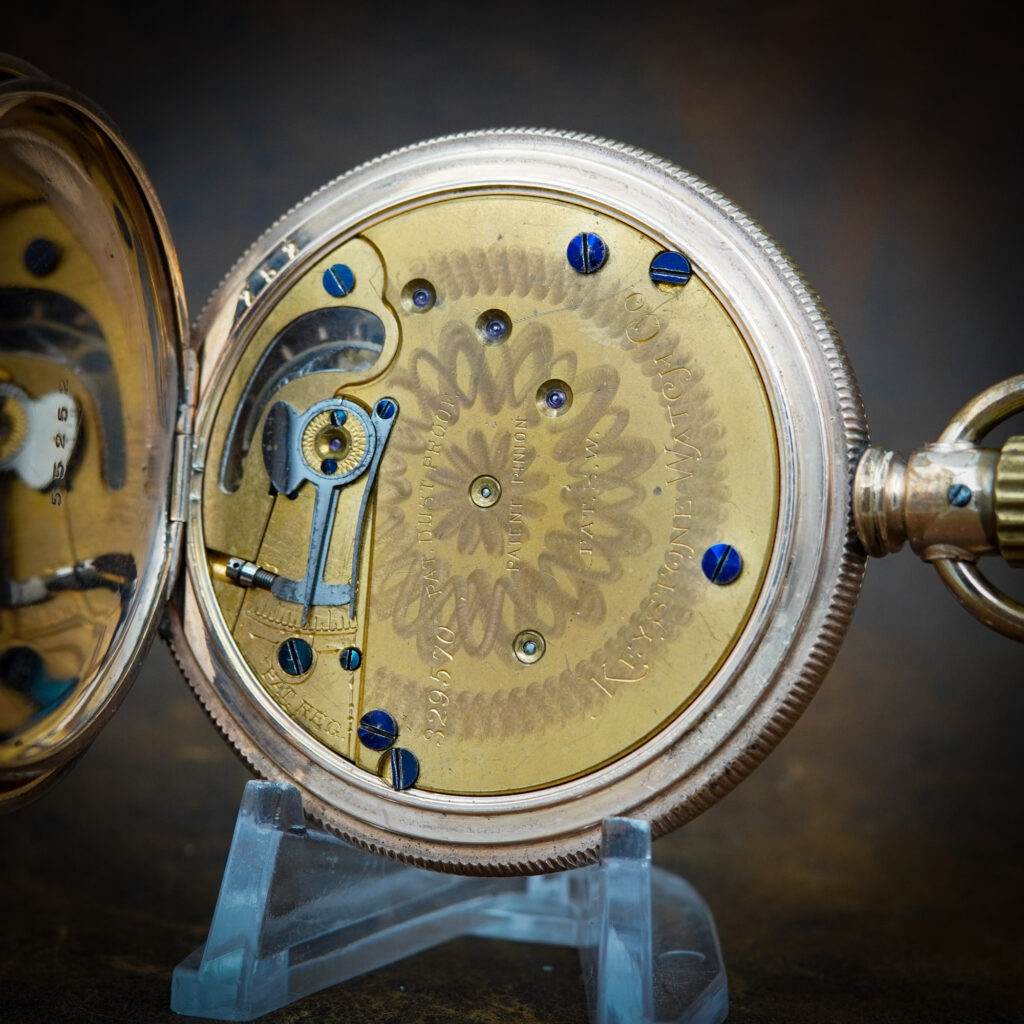Faux Jewel Settings on Waltham’s Model 1857
At first glance, many early movements produced by the American watch factories appear to have screw-set jewel settings. However, under close inspection, these movements reveal scribed circles designed to imitate jewel settings.
This practice was most frequently implemented on 11-Jewel movements, where the top plate is jeweled, but the lower plate is not. The jewels were burnished into the upper plates and made to appear like more expensive screw-mounted jewel settings. As a result, an 11-Jewel movement could appear nearly identical to a 15-Jewel movement.
A quick inspection under magnification can easily identify these faux settings by the gilding texture that continues from the plate into the isolated area encircling the jewel.
Faux jewel settings generally indicate the movement is only jeweled on the upper plate. True jewel settings are independent pieces and will be characterized by a smoother texture, contrasting the plate gilding. While plenty of exceptions exist, true jewel settings during early production eras generally indicate the upper and lower plates are jeweled. However, it is always advisable to verify the jeweling under the dial when in doubt.
Waltham’s Model 1857 P.S. Bartlett (pictured) and Elgin’s 18-Size G.M. Wheeler were prominent grades that featured faux jewel settings. The market eventually influenced the large watch companies to discontinue this practice.





Nathan,
Your article on Waltham’s model 1857 and it’s faux settings. It prompted me to look at my model 1857 P.S. Bartlett 18s #395653 (from about 1869) and the jewels on the rear plates were inscribed and screws installed.